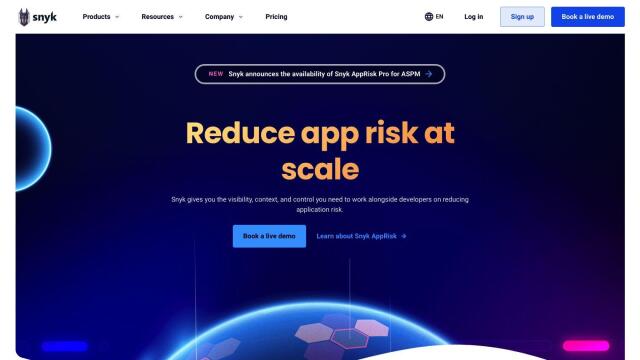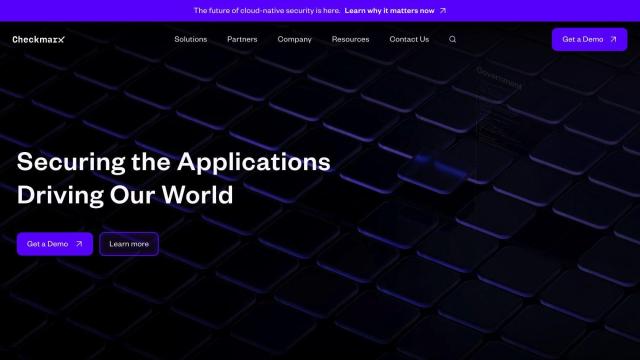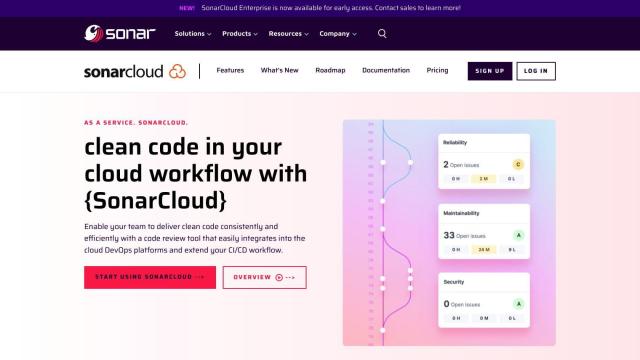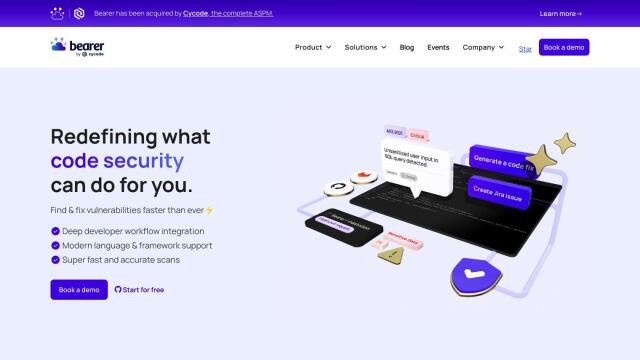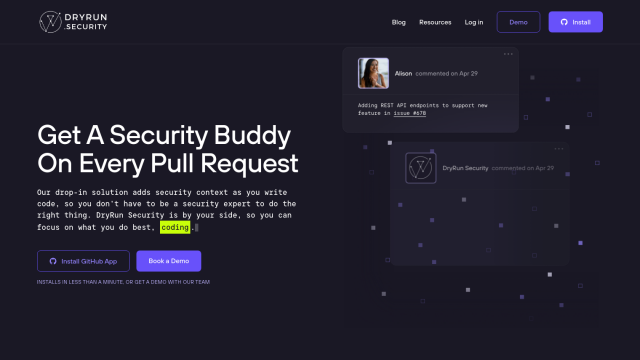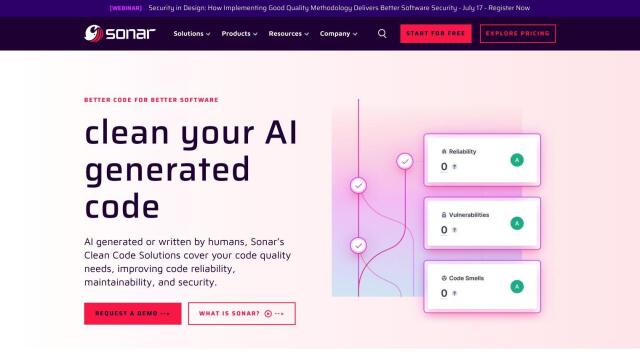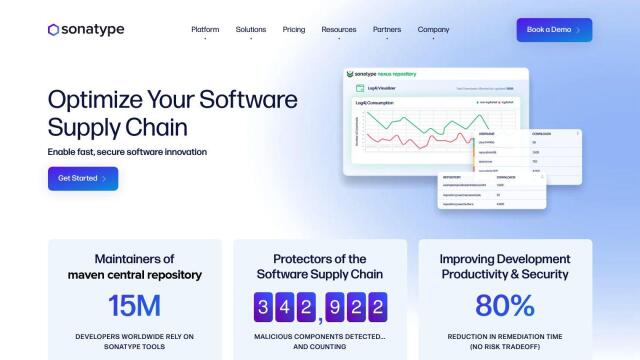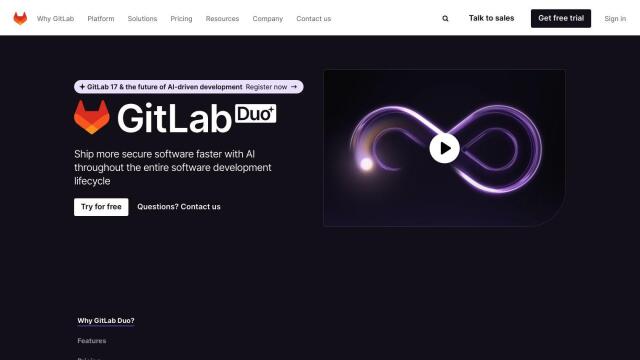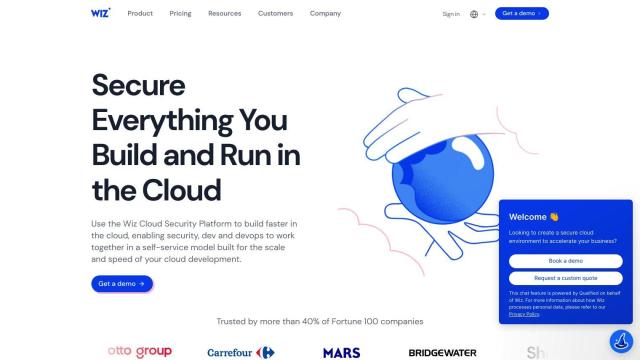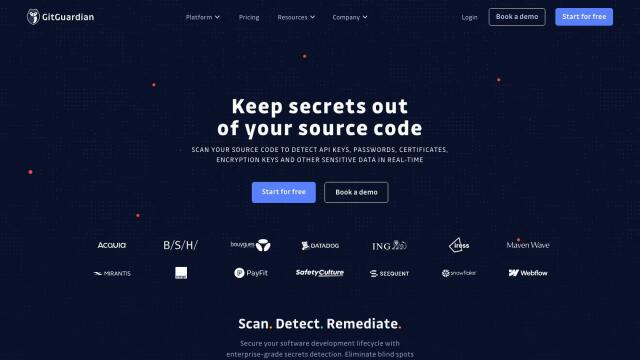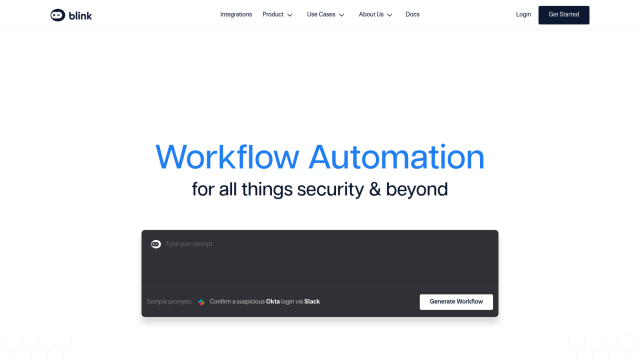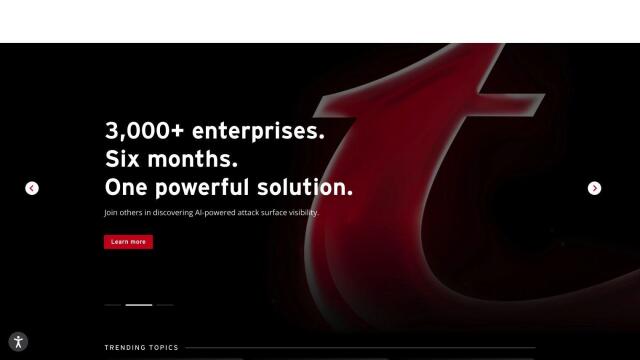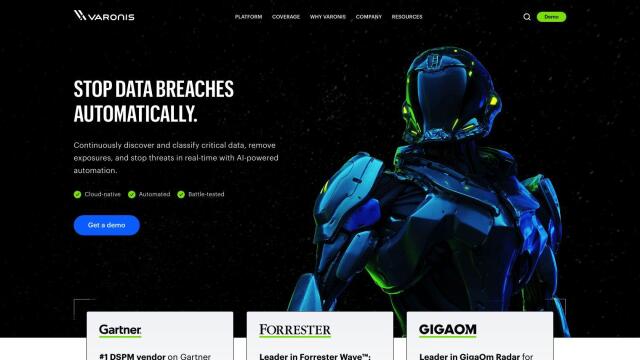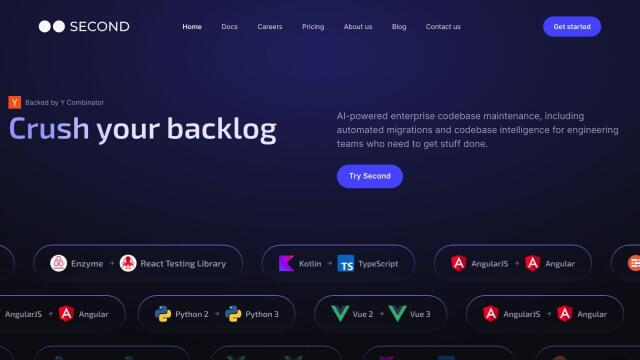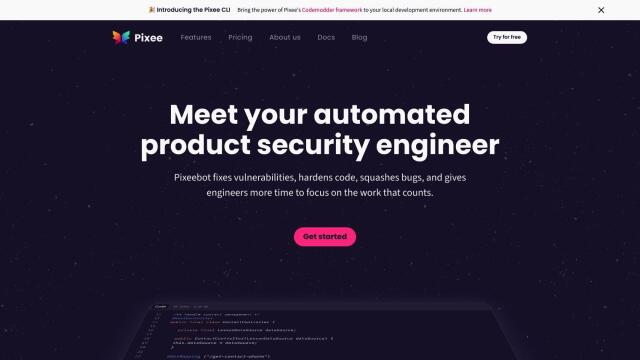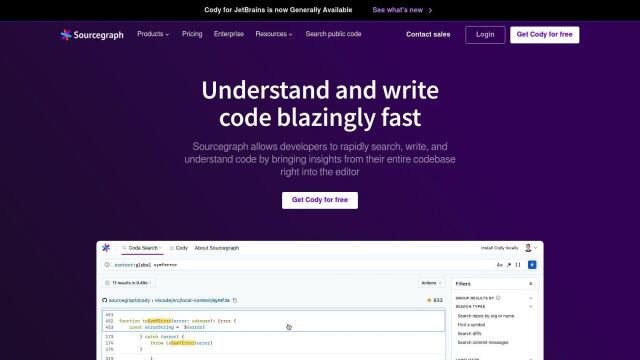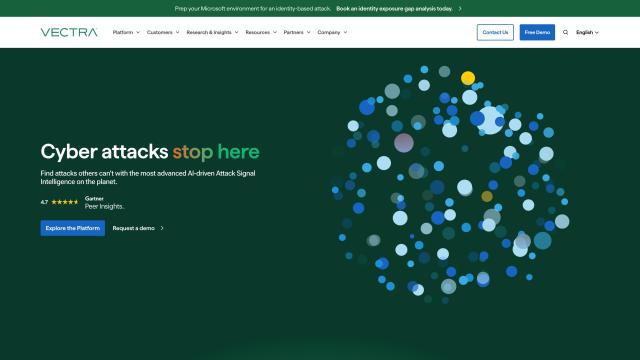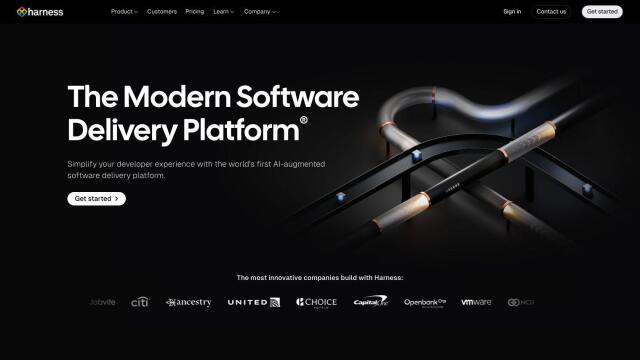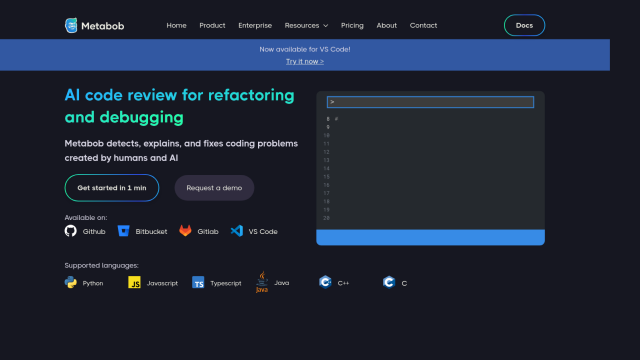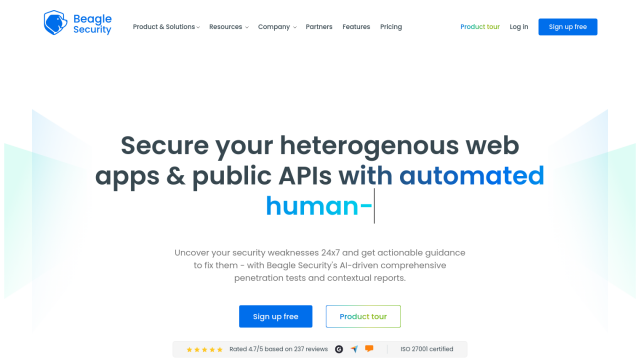
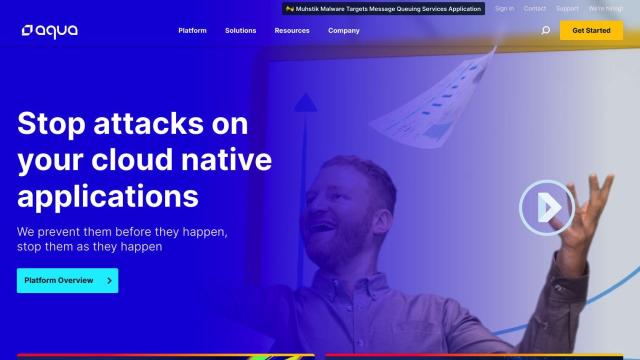
Aqua
If you're looking for another alternative to Snyk, Aqua is a popular option. It's a cloud native security platform that works with Kubernetes, Docker, OpenShift and other tools. Aqua's cloud native security spans the full software development life cycle with features like event-based scanning, genAI security and automated devsecops. It works in a variety of environments, including AWS, Google Cloud and Azure, so it's a good option for developers who want to focus on cloud security.

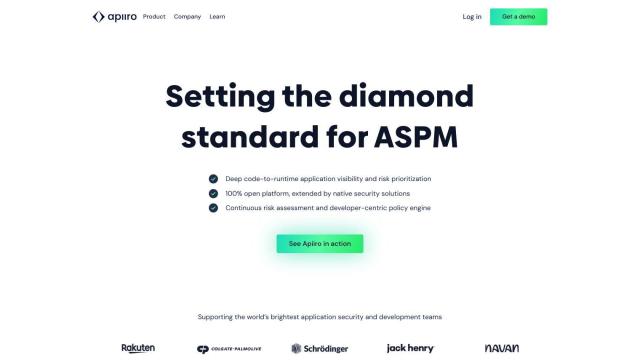
Apiiro
Another good option is Apiiro. The platform provides end-to-end code-to-runtime visibility into applications through features like deep code analysis and risk graph prioritization. Apiiro integrates with native security controls to provide a single pane of glass view of risk and automates manual security processes, helping to streamline the identification and remediation of critical application risks. Its developer-first approach helps to align security and development teams, improving collaboration and remediation efficiency.

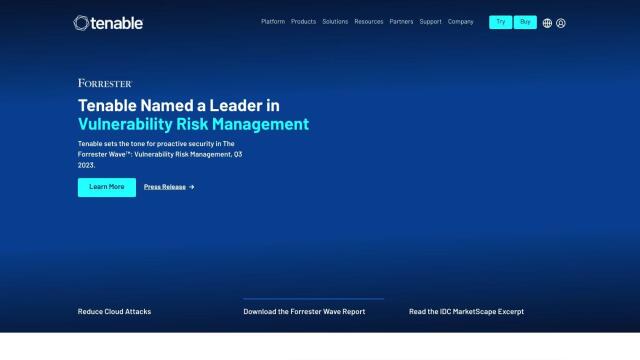
Tenable
Tenable is another option to consider. Tenable has a broad range of solutions for vulnerability management, cloud security and operational technology security. It includes features like exposure metrics, real-time vulnerability assessment and GenAI analytics, providing a single pane of glass view of an organization's attack surface. Tenable supports multi-cloud environments and a wide range of industries, making it a good option for organizations that need a broad platform for managing cyber risk.

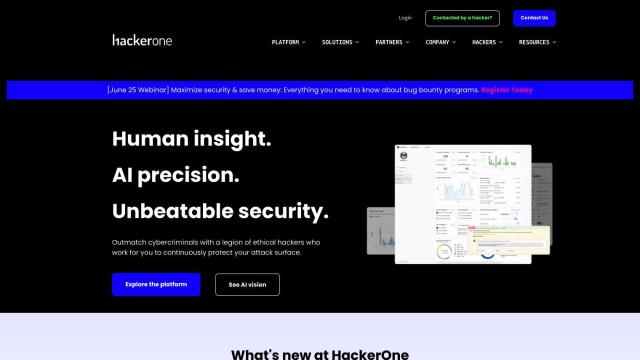
HackerOne
If you want to incorporate ethical hacking into your security program, HackerOne is an interesting option. The company has a global community of ethical hackers who can help find and fix vulnerabilities through bug bounty and penetration testing. HackerOne's combination of human expertise and AI tools can help companies improve their digital security and respond more rapidly to emerging threats.

